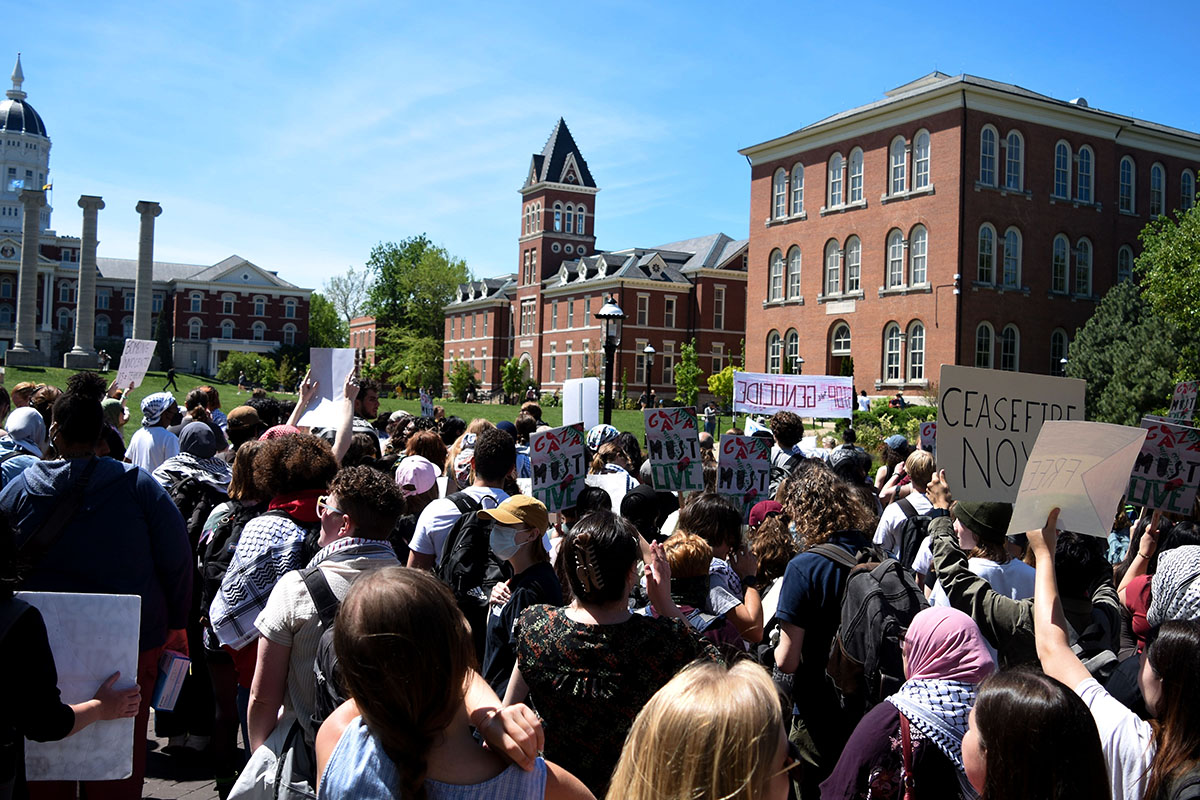The Environmental Coalition wraps up initiative to counteract RBHS paper usage
March 24, 2022
The RBHS Environmental Coalition concluded their initiative to offset RBHS paper usage with the non-profit organization, Tree-Plenish, March 16. The club was able to order 92 native tree saplings to plant for their drive April 16, effectively counteracting the school’s use of 920,000 sheets of paper. These trees will conduct photosynthesis and help capture carbon dioxide in our atmosphere, therefore, helping us reduce the excess amount of carbon dioxide that’s in our atmosphere currently. Photosynthesis is the most effective method to decrease the amount of carbon dioxide that’s in our atmosphere, and increasing the number of plant life responsibly is the biggest environmental benefit in both the short and the long-term. [Trees] also prevent soil erosion, excess runoff [and] provide a habitat for other wildlife. — Junior Fatima Hussain
Junior Fatima Hussain, co-leader of the Environmental Coalition, said despite initial challenges in community outreach, the club created an extensive plan and prepared various promotional materials that made the initiative successful.
“It takes time to build a following on social media platforms, and since our club started our Instagram two weeks before this initiative started, it took a while for us to gain any real traction,” Hussain said. “However, we’ve now passed the ordering deadline, and people have collectively ordered 92 trees. That’s a number we’re really happy with.”
Advanced Placement Environmental Science and Biology Honors teacher, Dr. Andrew Kinslow, said student involvement is important in fostering a healthy, sustainable environment at RBHS.
“It is inspiring to see youth interested in being good stewards of the environment for the environment as a whole and specifically for our local community,” Kinslow said. “Living in harmony with our environment is important. We cannot abuse our natural resources without giving back some to maintain balance.”
Senior Carmen Marr, co-leader of the Environmental Coalition, said schools play a major role in promoting sustainability in Columbia, Missouri, as it makes environmental activism largely accessible to young students.
“I’ve been passionate about environmental issues since sixth grade after watching a documentary on climate change,” Marr said. “Volunteering with the Environmental Coalition gave me something tangible to do with that passion. Schools are some of the best places to promote sustainability, as they can make sustainable habits accessible to everyone. Additionally, we spend a large portion of our lives at school, so being more sustainable there will likely translate to more sustainable habits later in life.”
Hussain said not only has the fundraiser increased overall awareness of Missouri’s natural biodiversity, but the saplings provide direct benefits for the environment.
“These trees will conduct photosynthesis and help capture carbon dioxide in our atmosphere, therefore, helping us reduce the excess amount of carbon dioxide that’s in our atmosphere currently,” Hussain said. “Photosynthesis is the most effective method to decrease the amount of carbon dioxide that’s in our atmosphere, and increasing the number of plant life responsibly is the biggest environmental benefit in both the short and the long-term. [Trees] also prevent soil erosion, excess runoff [and] provide a habitat for other wildlife.”
Alongside the fundraiser, there are various ways in which students who want to be more involved in environmental activism can practice sustainability on a day-to-day basis, Marr said.
“Reducing the amount of waste you produce, reusing and recycling what you can and ensuring that all of your waste gets to trash or recycling will be a great help,” Marr said. “People can also shop more sustainably, prioritizing companies that minimize and offset their waste and carbon emissions. Turning off and unplugging anything that uses electricity when you aren’t using it, not using multiple devices at once and enjoying some of your free time outside in the nice spring weather are all great ways of doing this.“
In a larger sense, Hussain said promoting sustainability on an individual level has the power to systematically impact how environmental issues, such as climate change, are combated in the future.
“We cannot keep on living the way that we are right now and expect to still be alive and well in 50 to 60 year’s time,” Hussain said. “Once we become of age, I cannot stress the importance of voting for officials who will tackle climate change with the urgency that we deserve. [RBHS] has an amazing community with amazing people, and if we can educate those people and raise awareness about the importance of making lifestyle changes on an individual level, then I believe we can create a ripple effect that will help create a bigger change in our culture.”
































































































